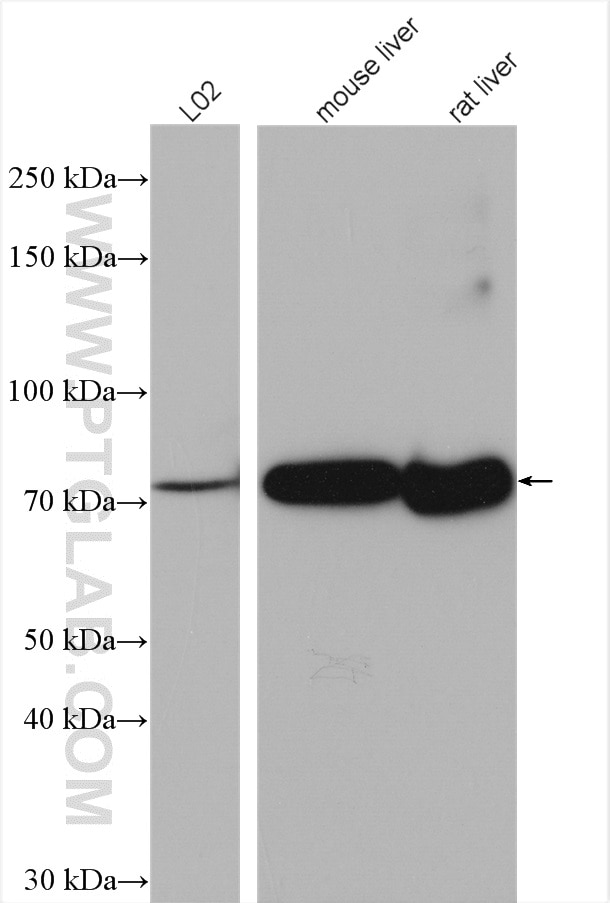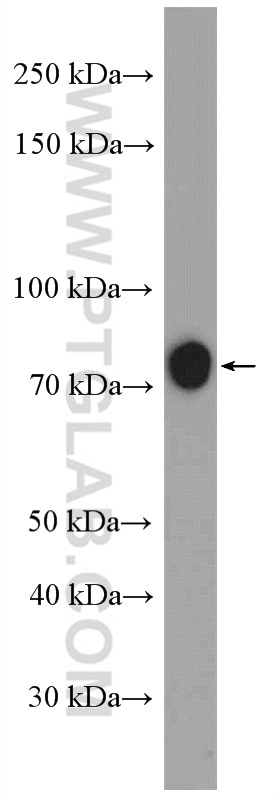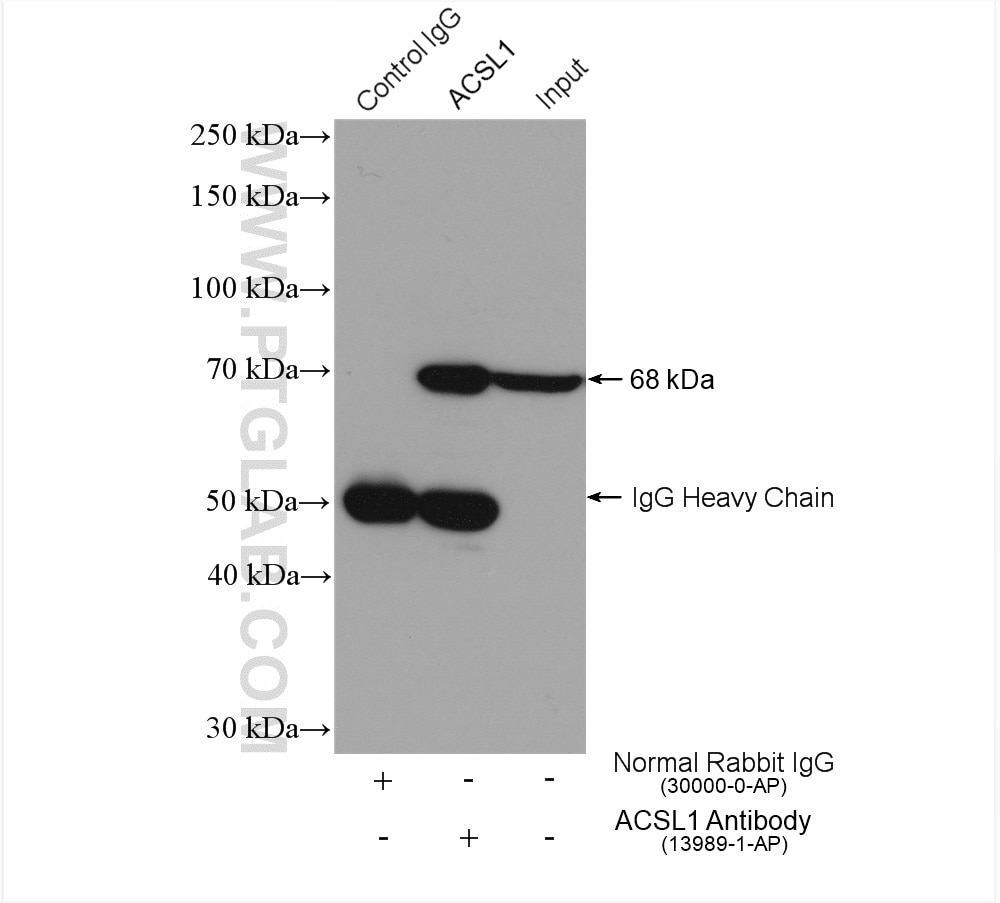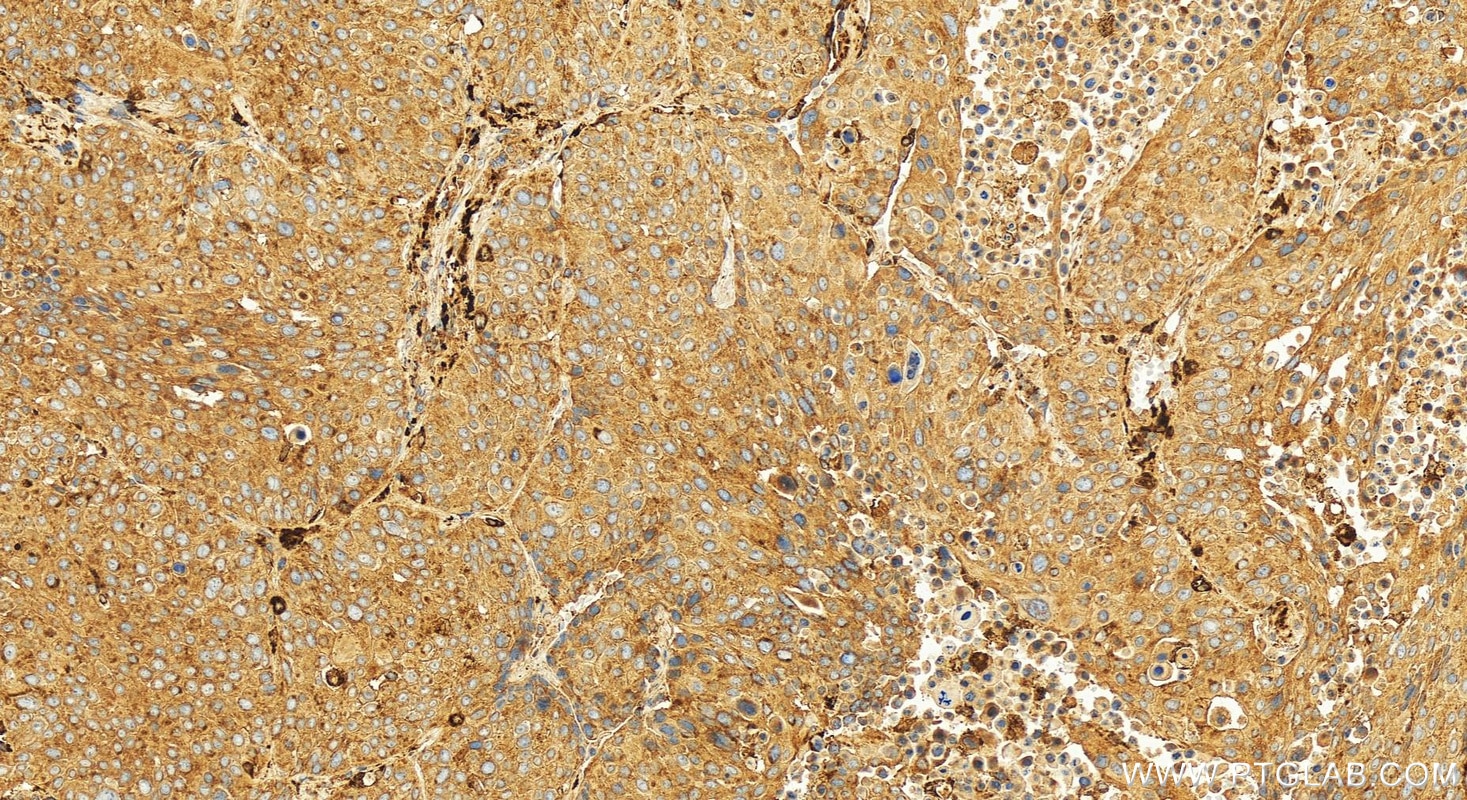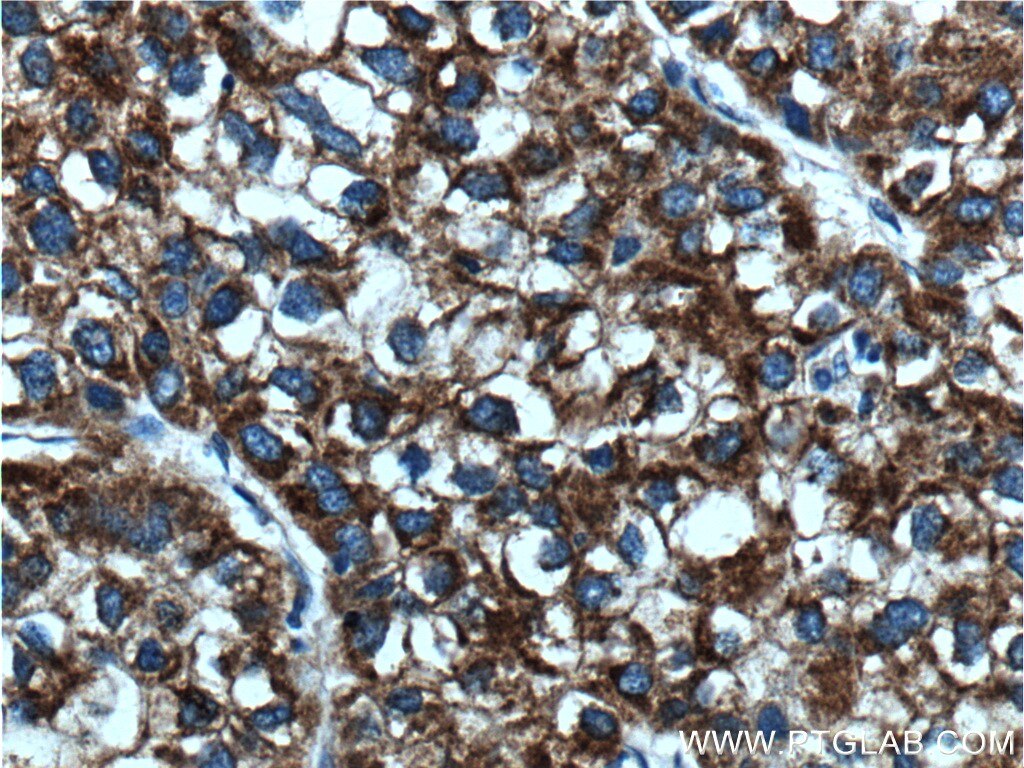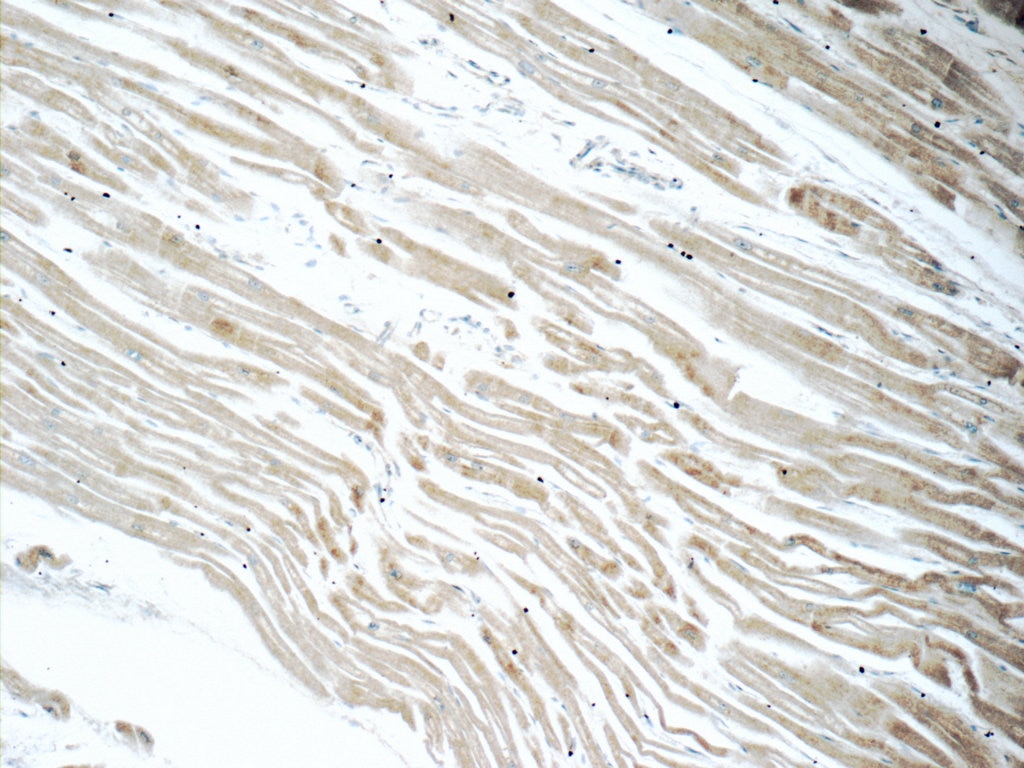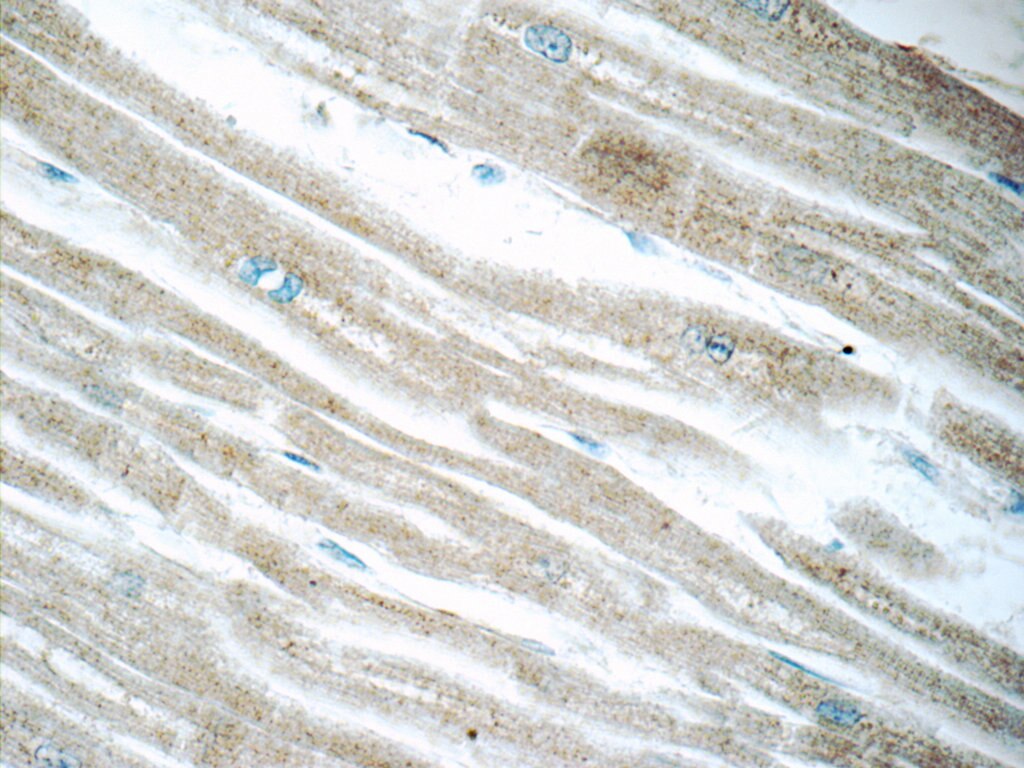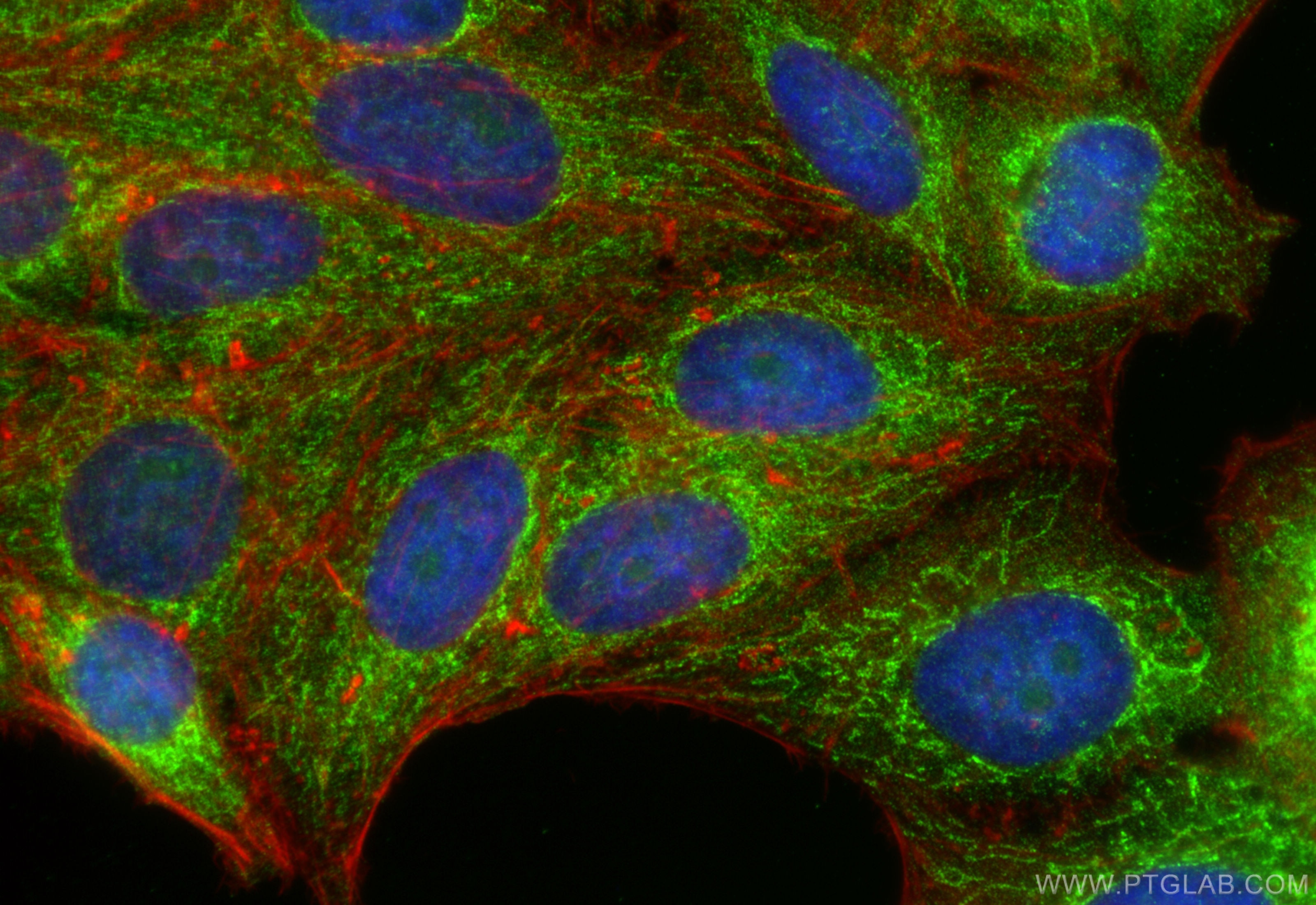Tested Applications
| Positive WB detected in | L02 cells, mouse cerebellum tissue, mouse liver tissue, rat liver tissue |
| Positive IP detected in | mouse liver tissue |
| Positive IHC detected in | human lung squamous cell carcinoma tissue, human heart tissue, human liver cancer tissue Note: suggested antigen retrieval with TE buffer pH 9.0; (*) Alternatively, antigen retrieval may be performed with citrate buffer pH 6.0 |
| Positive IF/ICC detected in | HepG2 cells |
Recommended dilution
| Application | Dilution |
|---|---|
| Western Blot (WB) | WB : 1:1000-1:6000 |
| Immunoprecipitation (IP) | IP : 0.5-4.0 ug for 1.0-3.0 mg of total protein lysate |
| Immunohistochemistry (IHC) | IHC : 1:200-1:800 |
| Immunofluorescence (IF)/ICC | IF/ICC : 1:400-1:1600 |
| It is recommended that this reagent should be titrated in each testing system to obtain optimal results. | |
| Sample-dependent, Check data in validation data gallery. | |
Published Applications
| KD/KO | See 3 publications below |
| WB | See 52 publications below |
| IHC | See 8 publications below |
| IF | See 4 publications below |
| IP | See 2 publications below |
Product Information
13989-1-AP targets ACSL1 in WB, IHC, IF/ICC, IP, ELISA applications and shows reactivity with human, mouse, rat samples.
| Tested Reactivity | human, mouse, rat |
| Cited Reactivity | human, mouse, rat, pig |
| Host / Isotype | Rabbit / IgG |
| Class | Polyclonal |
| Type | Antibody |
| Immunogen | ACSL1 fusion protein Ag5059 Predict reactive species |
| Full Name | acyl-CoA synthetase long-chain family member 1 |
| Calculated Molecular Weight | 78 kDa |
| Observed Molecular Weight | 68 kDa, 78 kDa |
| GenBank Accession Number | BC050073 |
| Gene Symbol | ACSL1 |
| Gene ID (NCBI) | 2180 |
| RRID | AB_2257870 |
| Conjugate | Unconjugated |
| Form | Liquid |
| Purification Method | Antigen affinity purification |
| UNIPROT ID | P33121 |
| Storage Buffer | PBS with 0.02% sodium azide and 50% glycerol , pH 7.3 |
| Storage Conditions | Store at -20°C. Stable for one year after shipment. Aliquoting is unnecessary for -20oC storage. 20ul sizes contain 0.1% BSA. |
Background Information
ACSL1(Long-chain-fatty-acid--CoA ligase 1) is also named as FACL1, FACL2, LACS, LACS1, LACS2 and belongs to the ATP-dependent AMP-binding enzyme family. ACSL1 is a 75 kDa protein that is associated peripherally with the plasma membrane(Brian M Wiczer, etc., 2006). ACSL1 is abundantly expressed in tissues, such as liver and brown fat, that metabolize substantial amounts of triglycerides as fuel, and as such, a deficiency in ACSL1 function could have a more profound affect in those cells, resulting in hepatosteatosis and potentially increased very low density lipoprotein production by the liver or decreased thermogenic capacity in brown adipose tissue(PMID:19429676). An anti-rat ACSL1 antibody recognized a band of the predicted 68 kDa in high-speed supernatant from rat liver and in human and murine SMCs, monocyte-derived macrophages, and murine peritoneal macrophages (PMID:17259370). It has 2 isoforms produced by alternative splicing.
Protocols
| Product Specific Protocols | |
|---|---|
| WB protocol for ACSL1 antibody 13989-1-AP | Download protocol |
| IHC protocol for ACSL1 antibody 13989-1-AP | Download protocol |
| IF protocol for ACSL1 antibody 13989-1-AP | Download protocol |
| IP protocol for ACSL1 antibody 13989-1-AP | Download protocol |
| Standard Protocols | |
|---|---|
| Click here to view our Standard Protocols |
Publications
| Species | Application | Title |
|---|---|---|
Nat Cell Biol Functional multi-organelle units control inflammatory lipid metabolism of macrophages | ||
Hepatology Acetyl-CoA carboxylase α promotion of glucose-mediated fatty acid synthesis enhances survival of hepatocellular carcinoma in mice and patients. | ||
Theranostics Mesenchymal glioblastoma constitutes a major ceRNA signature in the TGF-β pathway. | ||
Cancer Res Long noncoding RNA HULC modulates abnormal lipid metabolism in hepatoma cells through an miR-9-mediated RXRA signaling pathway. | ||
Oxid Med Cell Longev Mild Hypothermia Attenuates Hepatic Ischemia-Reperfusion Injury through Regulating the JAK2/STAT3-CPT1a-Dependent Fatty Acid β-Oxidation. |
Reviews
The reviews below have been submitted by verified Proteintech customers who received an incentive for providing their feedback.
FH Thomas (Verified Customer) (10-23-2019) | Very good service, very good antibody
|
